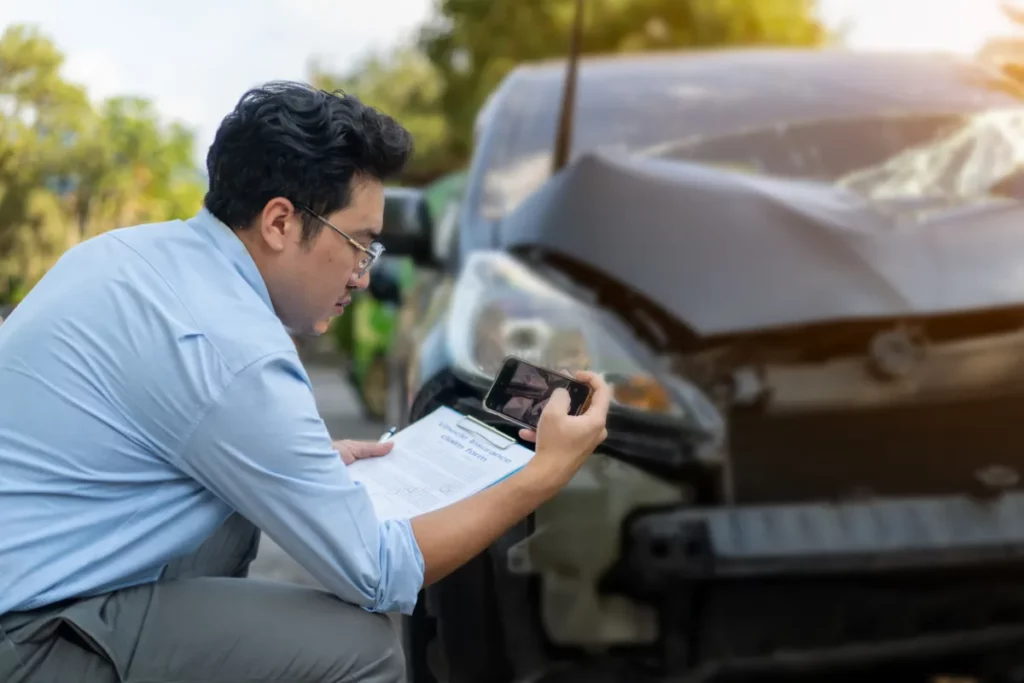
Car accidents are stressful enough without worrying about long-term financial consequences. But one important factor drivers often overlook is how an accident impacts their car insurance, specifically, how long that accident will linger on their insurance record. Understanding how long car accidents stay on your insurance and what that means for your premiums is key to managing costs and protecting your driving future.
Whether you’re dealing with a minor fender-bender or a more serious crash, the reality is that a single incident can follow you, financially speaking, for a considerable time. For anyone who has been in a collision, understanding how insurance providers view and record these events is the first step toward managing the financial recovery. If you’ve also sustained injuries, the situation becomes even more complex, often requiring professional guidance to handle a personal injury claim.
For a deeper understanding of your rights after a crash, it’s helpful to explore the car accident claims process in California and the legal resources available through experienced personal injury attorneys like those at Delfino Green & Green.
The Impact of Car Accidents on Your Record
When you’re involved in a car accident, it’s not just the damage to your vehicle or health that matters—your driving record and insurance premiums are also affected. In most cases, car accidents stay on your insurance record for three to five years. However, this can vary based on the severity of the accident, who was at fault, and your insurance provider’s policies.
Insurance companies use your driving record to assess how risky you are as a policyholder. The more accidents you’ve had, the higher the perceived risk, and the higher your car insurance premium. Even minor accidents can trigger rate hikes, especially if you’re found at fault.
In California, for example, an accident reported to the DMV will stay on your driving record for three years, though major offenses like DUIs can remain for up to 10 years.
Maintaining a clean driving record is your best defense against steep hikes in car insurance rates. Drivers with a long history of safe driving may see a smaller increase in their rates compared to those with previous violations or accidents. Your driving history serves as a testament to your reliability on the road, and a good record can provide a much-needed buffer when an accident does occur. Insurance companies are in the business of risk assessment, and your record is their primary tool for doing so.
Understanding At-Fault Accidents and Their Impact
The concept of “fault” is paramount in the world of car insurance. If you are determined to be the at-fault driver in an accident, the consequences for your auto insurance are typically more severe. An at-fault accident signals to your insurer that your actions led to the collision, which categorizes you as a higher-risk driver. As with other incidents, an at-fault accident will generally stay on your record for three to five years, but the associated premium increase is often much steeper.
For drivers in California, the liability limits of your car accident policy become critically important. If you are at fault, your liability coverage is what pays for the other party’s damages and injuries, up to your policy limits. Should the costs exceed your limits, you could be personally responsible for the remainder, which elevates the at-fault accident lawsuit risk, especially in a city like San Francisco, where medical and repair costs can be substantial for more serious accidents.
The financial sting of an at-fault accident is a key reason why understanding your policy is so crucial. The car insurance rate increase duration for a San Francisco driver can be significant, turning a momentary lapse in judgment into a financial burden that lasts for years. When an insurer reviews your file and sees an at-fault insurance claim, they adjust your premium to reflect the demonstrated risk, making it clear that fault is a primary factor in their calculations.
Accident Forgiveness and Auto Insurance Policies
Some insurance companies offer accident forgiveness as a way to cushion the blow of your first at-fault accident. If you qualify, the insurer may agree not to increase your premium due to that incident.
However, accident forgiveness is not universally available:
- It may only apply to your first accident
- There are typically eligibility requirements, like a clean driving record for a certain number of years
- Not all states or insurers offer this benefit
Still, if you’re eligible, enrolling in an accident forgiveness program can be a valuable part of your risk management strategy, especially in areas like California, where insurance premiums are already high.
California Car Accident Laws and Regulations
Navigating the aftermath of a collision requires understanding the specific rules in your state. California car accident laws are clear: most accidents and minor violations will stay on your driving record for three years. However, more serious incidents, such as a DUI or a hit-and-run, can remain on your record for up to 10 years, carrying severe consequences for your insurance rates and even your driving privileges.
The California DMV is the official keeper of these records. When you’re involved in an accident that results in injury, death, or property damage exceeding $1,000, it must be reported to the DMV. This official record is what insurance companies draw upon when calculating your premiums. This is why the question, “How long does a crash affect insurance in California?” typically has a baseline answer of three years for standard accidents.
Given the complexities, getting local insurance advice after an accident can be invaluable. The rules governing how long an accident stays on your driving record in California directly influence the car accident settlement process. If you find yourself in this situation, consulting with a California car accident lawyer can be a crucial step. An experienced attorney can help you understand your rights, deal with the insurance companies, and navigate the legal system to ensure your record is managed correctly and you are treated fairly.
Understanding How Long Accidents Stay on Records
To recap, the duration an accident stays on your insurance record is not a one-size-fits-all answer. It’s a combination of factors:
- State Law: As we’ve seen, California has its own specific timelines (generally three years).
- Insurance Company Policy: While guided by state law, each insurer has its own internal policies. Some may be more lenient, while others may penalize you for the full duration allowed by law.
- Severity of the Accident: A minor scrape is viewed differently than a multi-car pile-up. The more severe the accident, the longer and more significant the impact on your rates.
These records are not kept in a vacuum. They are accessible to your current insurer, any future insurance providers you might apply to, and in some cases, potential employers for jobs that require driving. This is why understanding the system is so important. Knowing when insurance rates go down after an accident allows you to budget accordingly and plan for the future. Typically, you can expect your rates to begin decreasing three to five years after the incident, provided you maintain a clean record going forward.
Managing Your Insurance Rates After an Accident
If you’ve been in an accident, don’t just accept a rate hike—there are actionable steps you can take to regain control of your insurance costs.
Tips for managing your premiums post-accident
- Take a defensive driving course: Many insurers offer discounts for completing state-approved classes.
- Ask about accident forgiveness: Even if you weren’t enrolled beforehand, some insurers may apply it retroactively for long-term customers.
- Shop around: Different insurers weigh accidents differently. A new provider may offer better rates.
- Increase your deductible: Raising your deductible can lower your premium, but only if you can afford the higher out-of-pocket cost.
- Bundle policies: Combining auto with home or renters insurance may unlock multi-policy discounts.
Practicing safe driving and avoiding further claims is the best way to rebuild trust with your insurer and see your rates go down over time.
Working with a Car Accident Lawyer
If your accident is complicated, involves injuries, or results in a lawsuit, it’s wise to consult with a California car accident lawyer. Our legal professionals at Delfino Green & Green can help you understand your rights and how to protect yourself from unnecessary financial exposure.
Our experienced attorneys can assist you with:
- Navigating the car accident settlement process
- Managing communications with insurance adjusters
- Understanding liability and protecting your assets
- Filing injury claims and seeking fair compensation
Having legal counsel ensures you’re not navigating post-accident insurance issues alone. This is especially important in San Francisco, where high vehicle density and traffic patterns can complicate fault and liability assessments.
Conclusion: Know What to Expect—and How to Respond
Car accidents can leave more than just physical and financial damage—they can impact your insurance costs for years. Knowing how long car accidents stay on your insurance is the first step to regaining control. From understanding fault and forgiveness programs to working with attorneys, the choices you make after an accident will shape your financial outcome.
If you’ve been involved in an accident and need help navigating your options, don’t wait. Contact Delfino Green & Green today to speak with an experienced car accident attorney who understands California’s insurance laws and can help protect your rights and your future.
Disclaimer: This content is for informational purposes only and does not constitute legal advice. For personalized legal assistance, please contact Delfino Green & Green directly.



